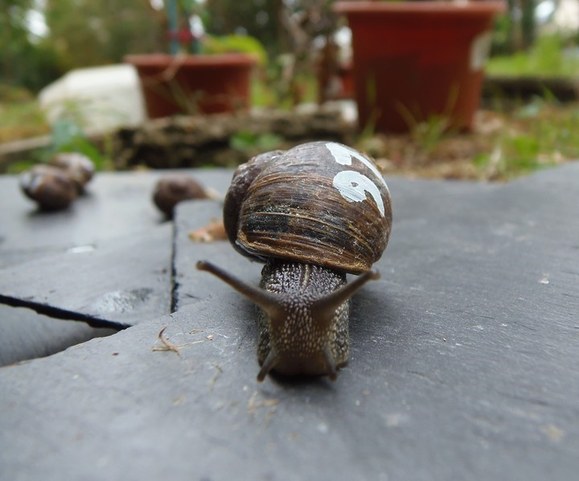Marie Skłodowska-Curie Action - HELICITY
Evolution of correlated traits in response to city life: helicid snails as windows on the consequences of urban history
Urbanization is one of the most dramatic land-use changes caused by humans, combining habitat fragmentation and loss, pollutions and increased temperature. While it causes numerous population declines in many species, others persist or even thrive in cities, possibly through evolutionary changes. In this project, dr. Dahirel will study how urbanization shapes multivariate phenotypic evolution in such an organism, including not only life-history traits, movement strategies/space use… but their association into integrated phenotypes. As a central point, he will explicitly consider the oft-neglected temporal heterogeneity of the urbanization process, comparing new and older urban neighbourhoods to see under which conditions organisms can adapt to city life fast enough. Using snails as models, this Action will combine advances in small animal tracking, statistical analysis and data science with state-of-the-art evolutionary ecology, to not only explore the mechanisms behind observed changes, but also potential consequences for relevant aspects of ecosystem functioning. This project will increase our understanding of the ecological consequences of evolution in response to human-caused environmental changes, helping fill major knowledge gaps noted by the IPBES. Through outreach, it will increase community engagement with (urban) biodiversity.
Objectives
These are the objectives of HELICITY:
- Understanding how urban history systematically improves our understanding of urban evolution
- Quantifying The (genetic) trait axes of least resistance for urban evolution
- Understanding how evolutionary responses predict ecosystem functioning shifts in cities
- Embracing the complexity of urbanisation improves our understanding of urban evolution
Role of Ghent University
The fellowship obtained by dr. Dahirel will be conducted at Ghent University
Website
Contact
Prof. Dries Bonte
Department Biology
Phone number: +32 9 264 52 13
E-mail
